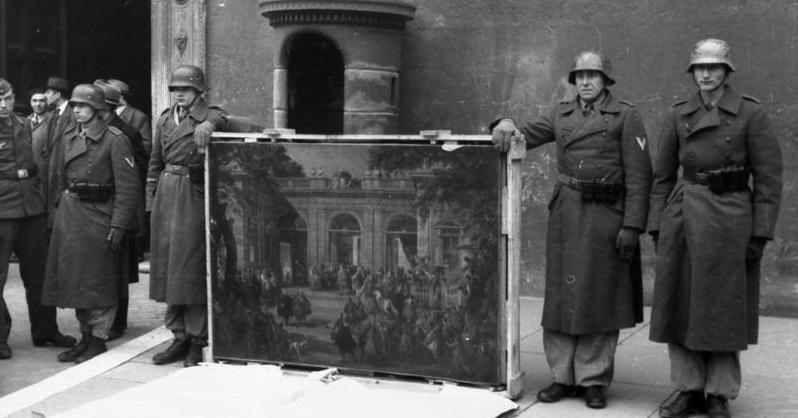Bavaria’s minister of culture recently acknowledged artworks entrusted to it stolen from Jews by the Third Reich, were sold back to the descendants of Nazi plunderers such as Hermann Göring.
Ludwig Spaenle’s confirmation was in answer to questions from different parties and reports this past summer by “Süddeutsche Zeitung, (SZ) ” a Munich newspaper. It told readers that stolen artworks returned to Austria by the Allies in 1949, had occasionally been mixed into museum collections exhibited in Munich.
He admitted that incomplete research into the history of artworks occurred in years past. A government-sponsored study in 2012 cataloged 890 works of questionable origin still possessed by Bavarian bodies. He also said 45 percent of the works had been researched and of that number 55 percent had recently been listed on websites dedicated to advertising possible stolen art.
However, critics say that Bavaria’s efforts aren’t good enough. Jörg Häntzschel, the author of the SZ report, termed the efforts of the state in southern Germany as feeble and slow.
It’ll take a century at this speed, Häntzschel said.
The works identified in the 2012 study, embody only those works now possessed by Bavarian museums and excludes thousands of works American troops entrusted to Bavaria nearly 75 years ago.
Very few of the works were returned to their rightful owners despite Bavaria’s international promises, say critics.
The Washington Conference Principles on Nazi-Confiscated Art was signed in 1998. Even though the Gallery has about 5,000 suspect works, only 12 have been returned, said Sepp Dürr, Green Party assistant to the state parliament. They speak and speak but nothing is ever done.
In London, the victims’ support group Commission for Looted Art in Europe says that effort falls short of helping actual restitution. They said the onus shouldn’t be on those with a legal claim to possession and shouldn’t have to weather the long process of locating their artwork, DW reported.
Spaenle informed parliament that Bavarians were addressing the matter with great conviction and triumph, although he admitted that more must be done. Those in the know say the state must change its mentality.
The dreadful fact isn’t that research was stopped, but they gave artworks to relatives of the thieves who made excuses about ownership, Dürr said. Attempting to retrieve a work from a restitution power in Bavaria is very hard. Even then the minister and the municipal painting collection pretend that everything is fine. The minister shouldn’t have only reported about it. That isn’t right.
